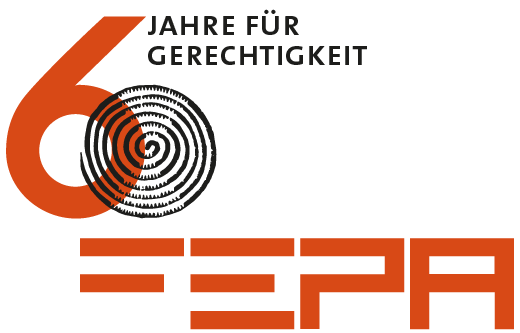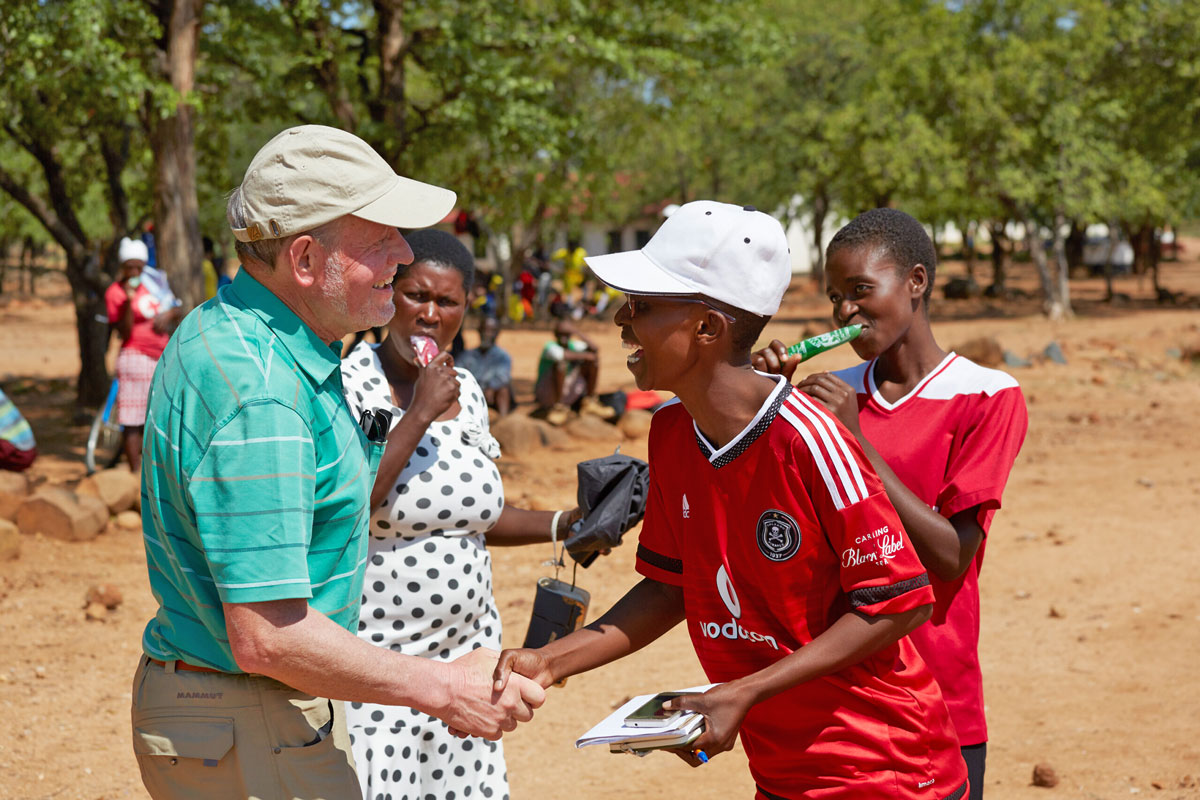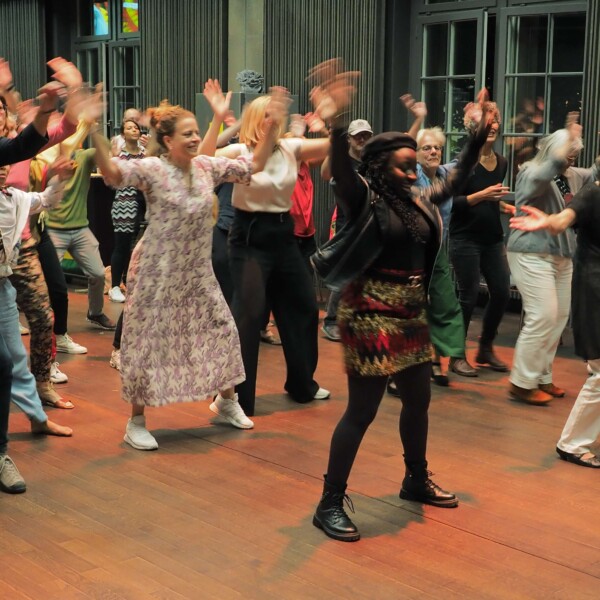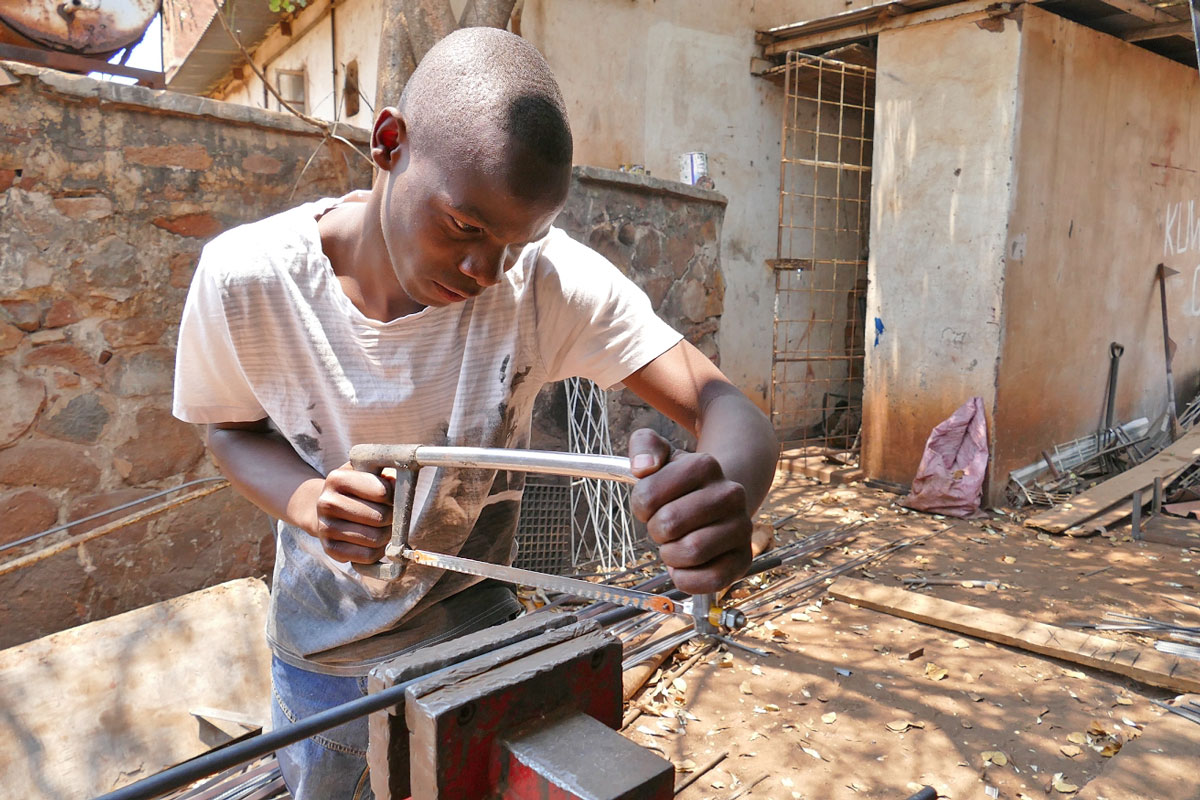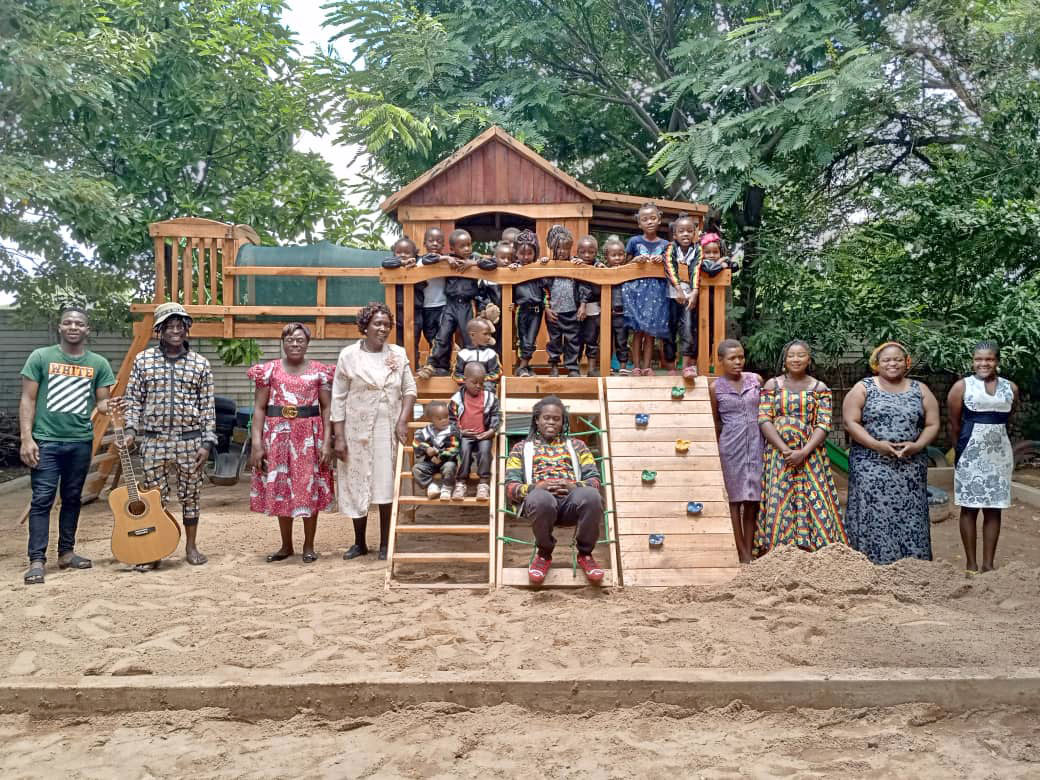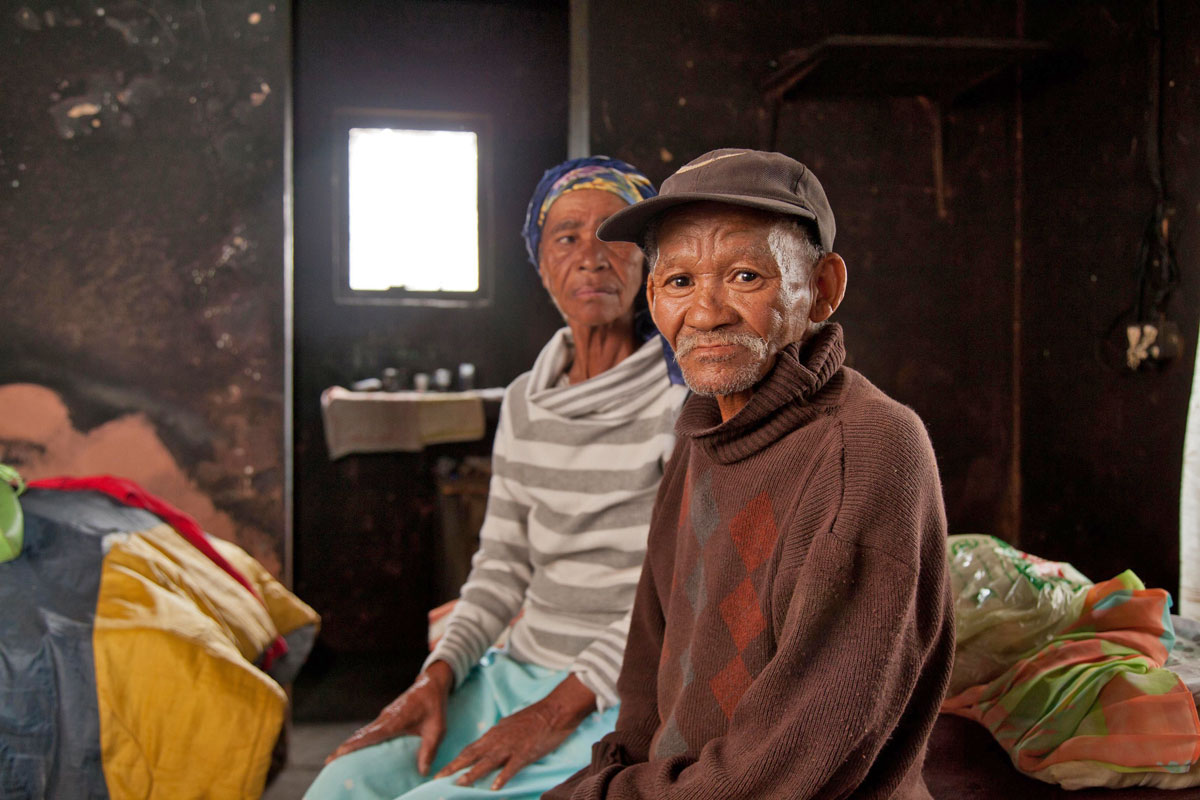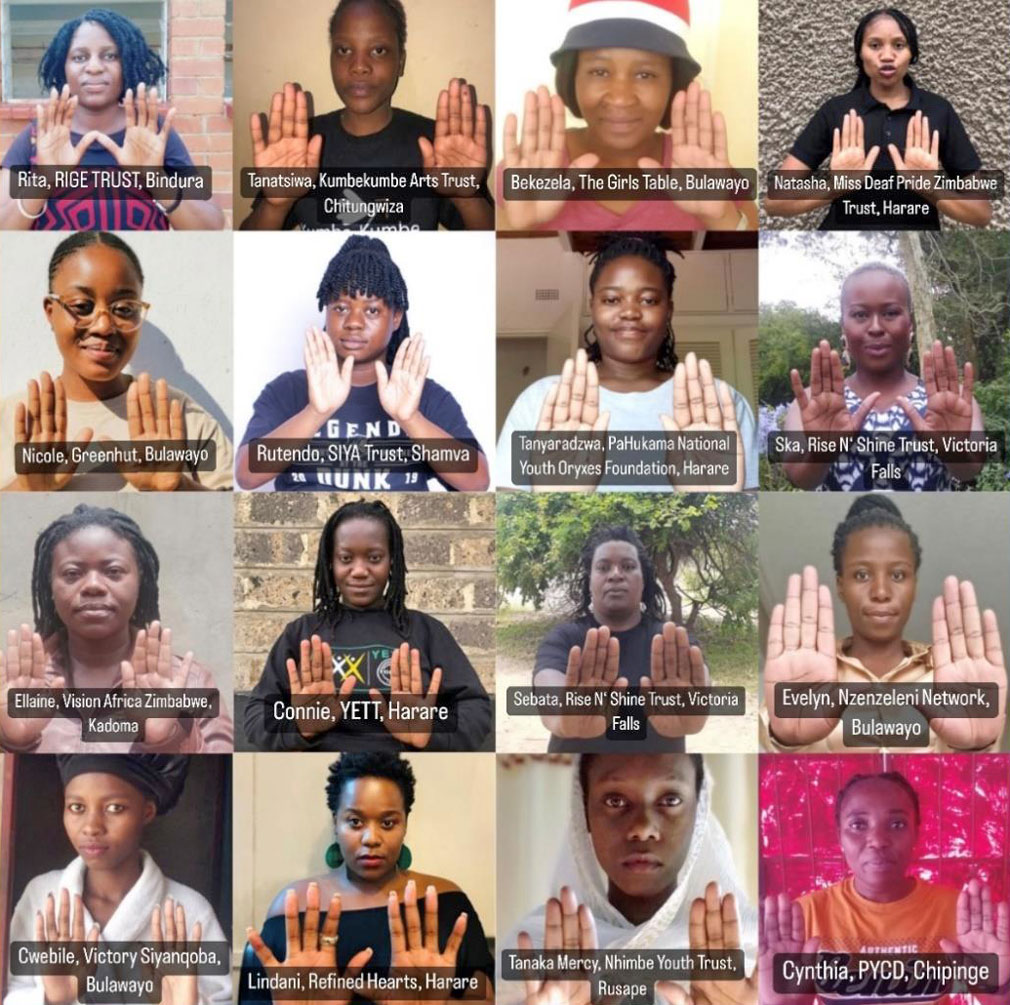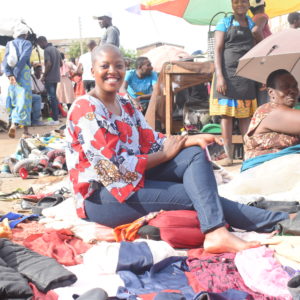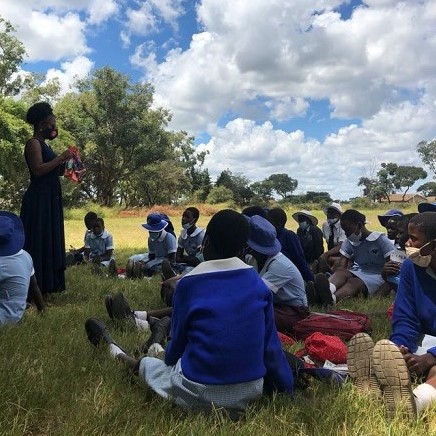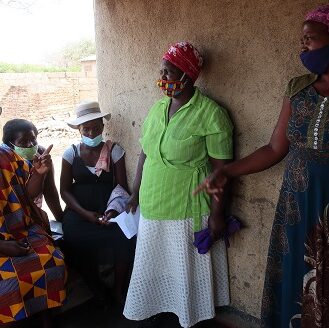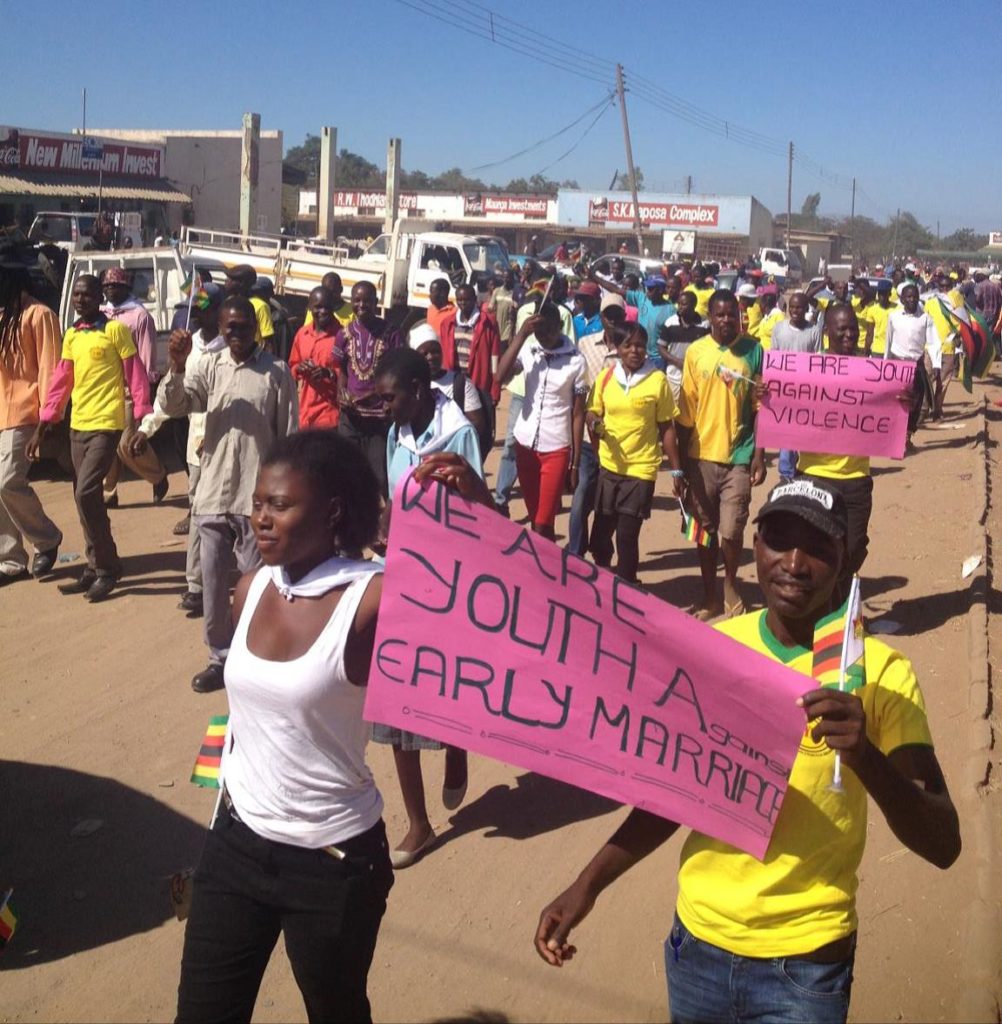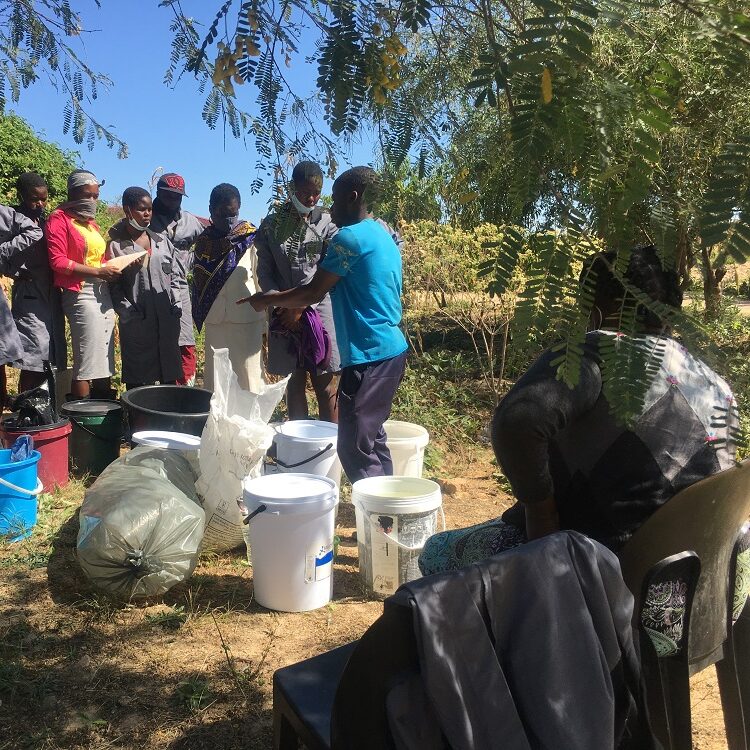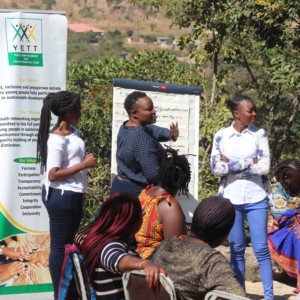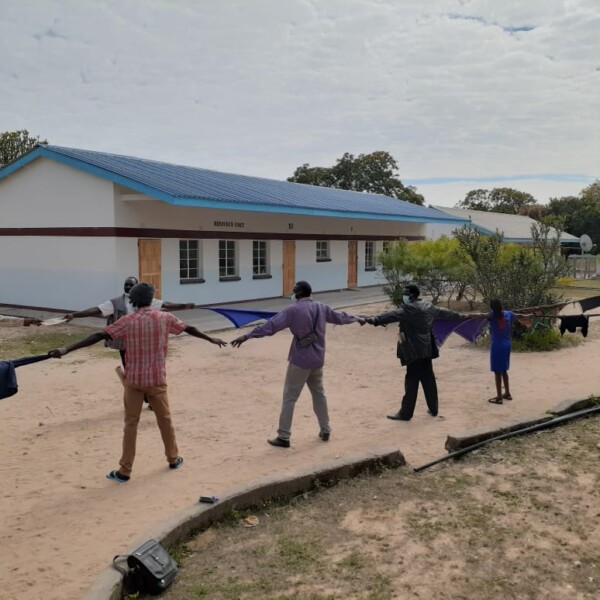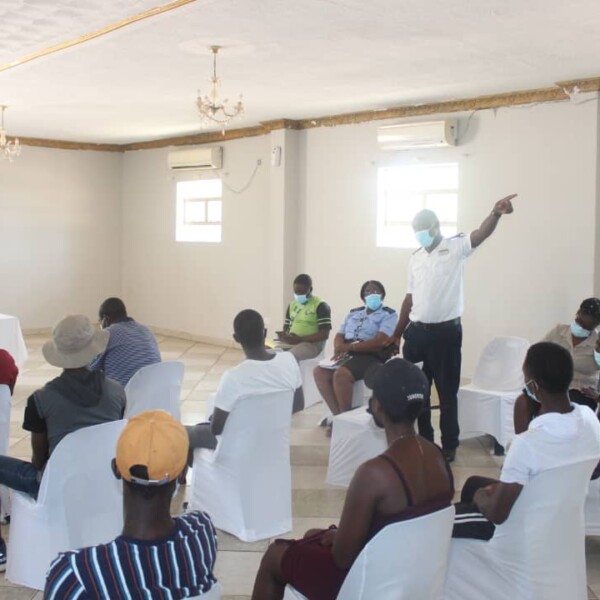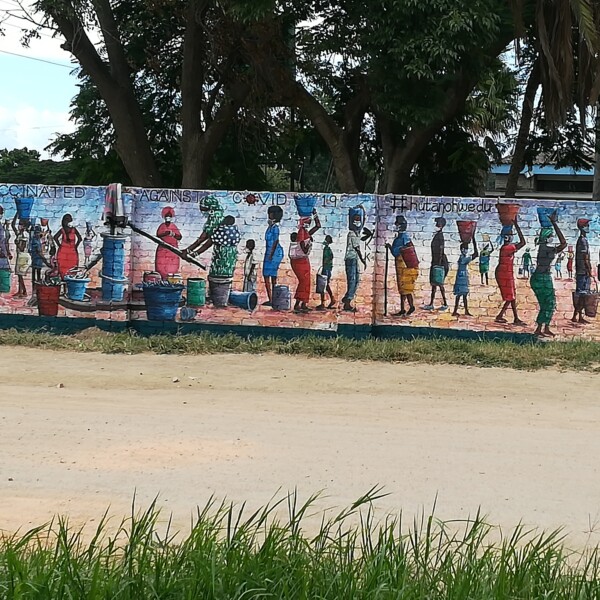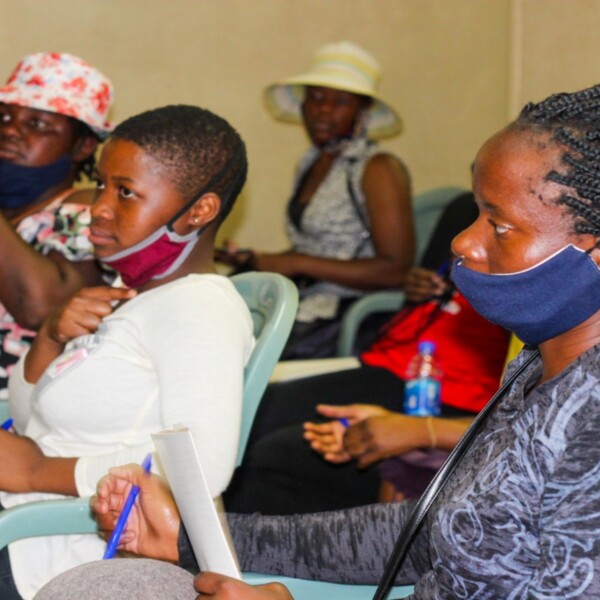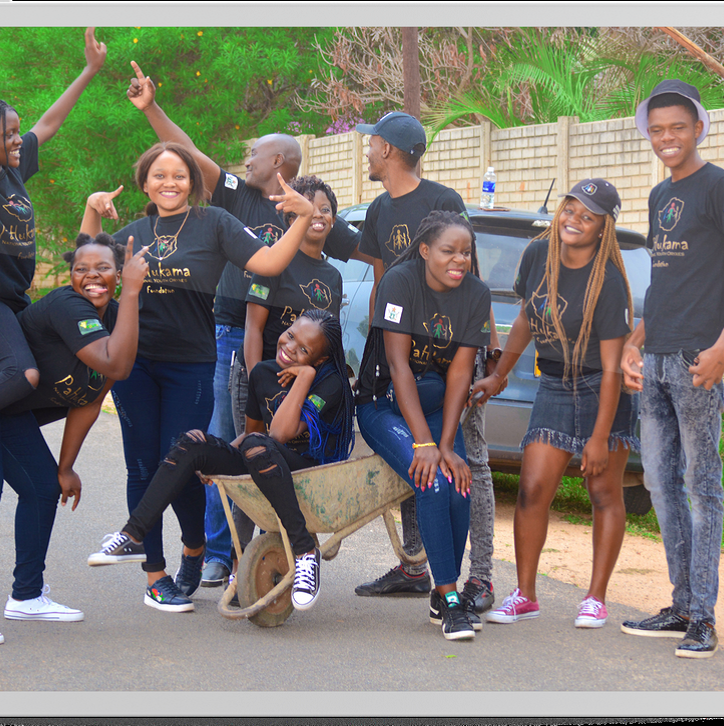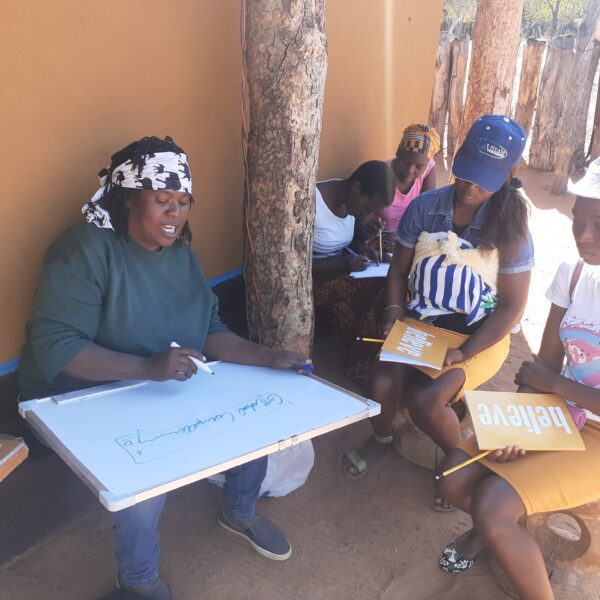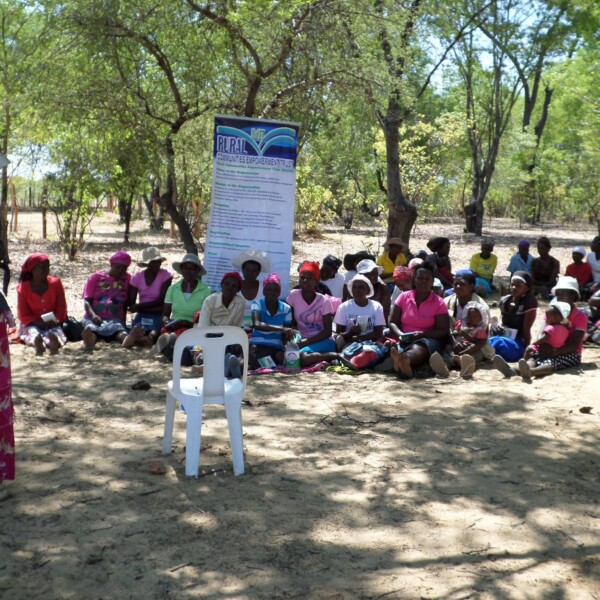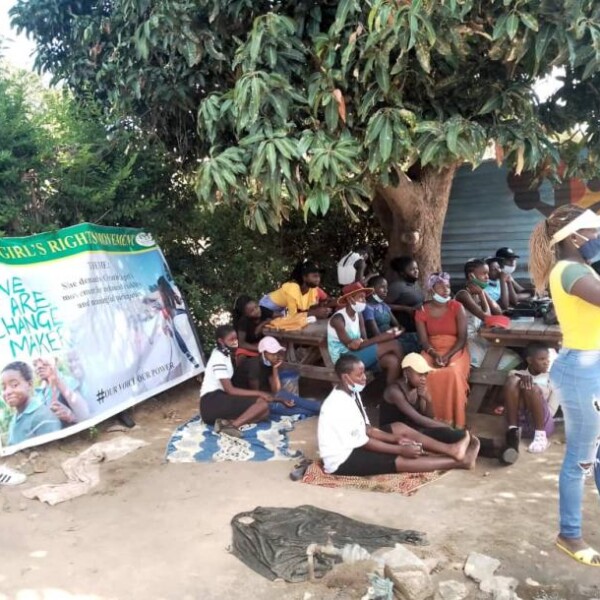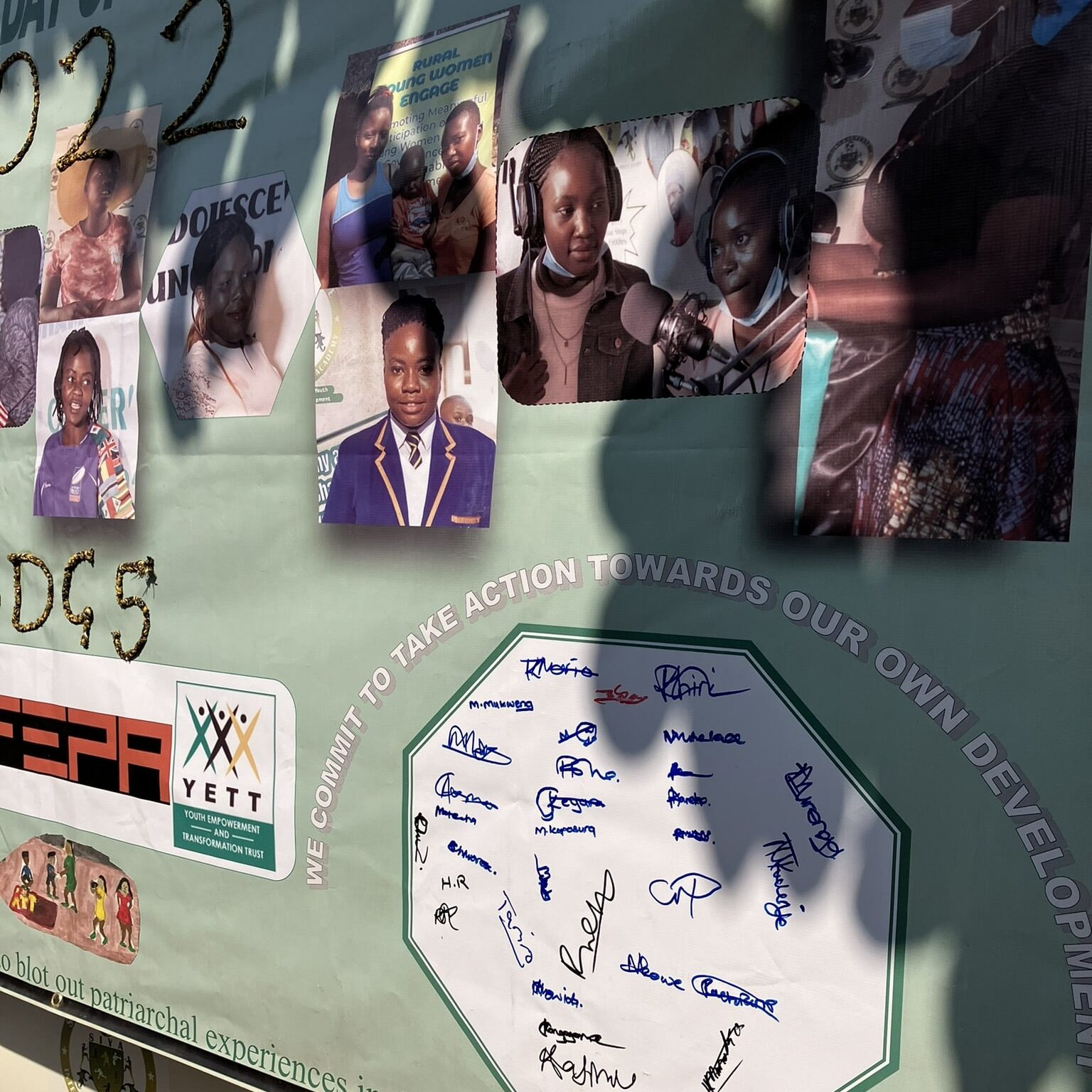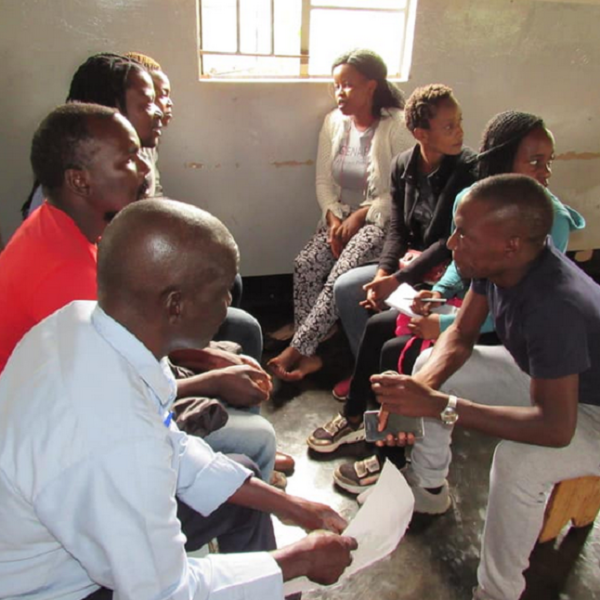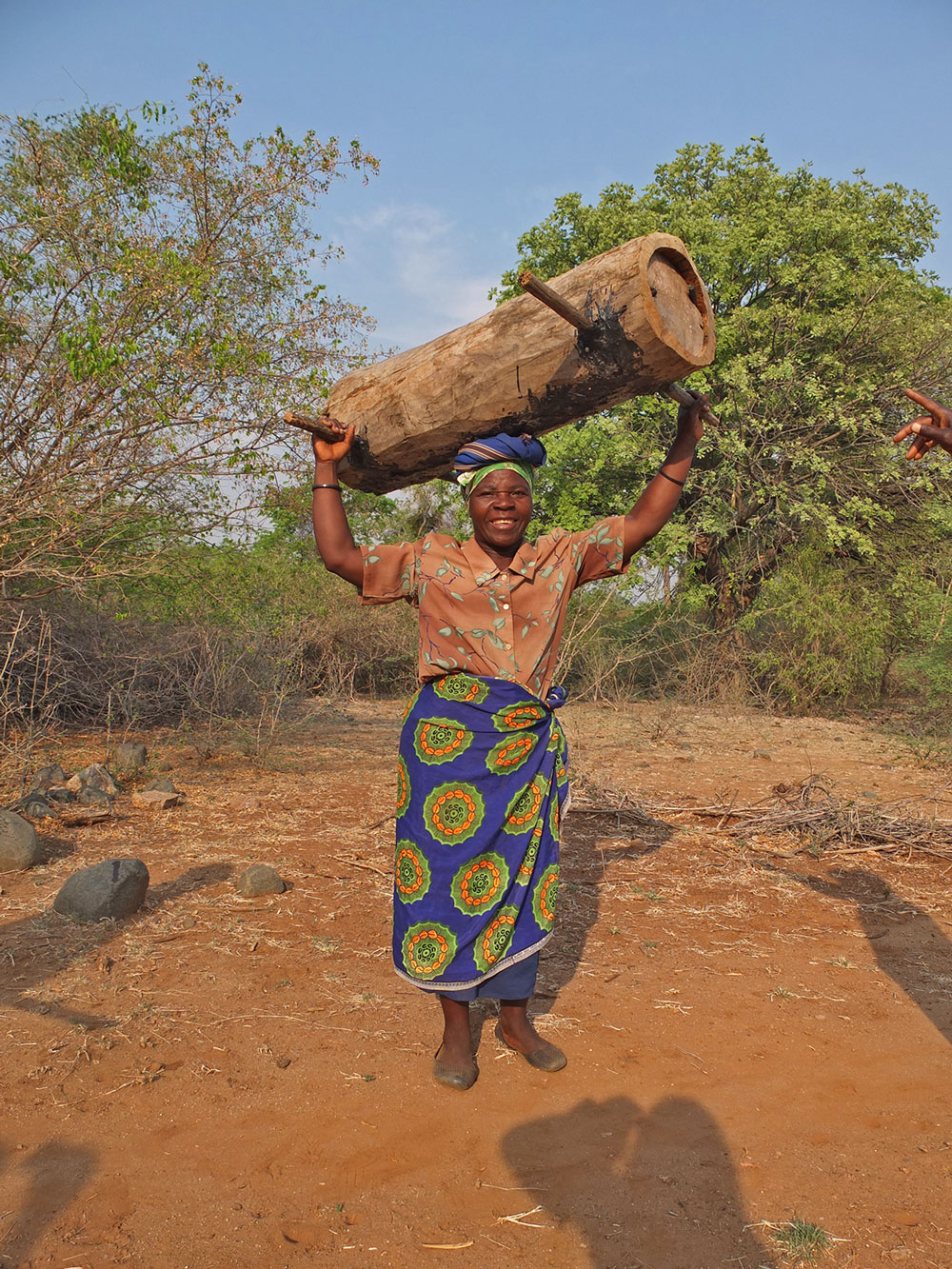Category: Startseite
Training opportunities for marginalized Young People
Training opportunities for marginalized Young People
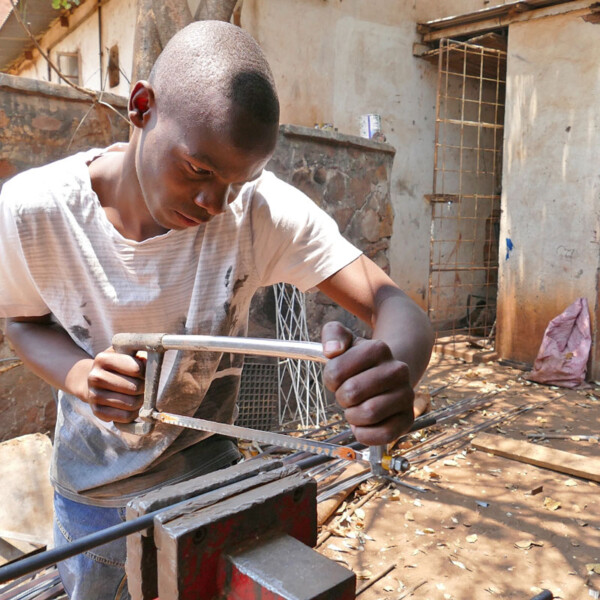
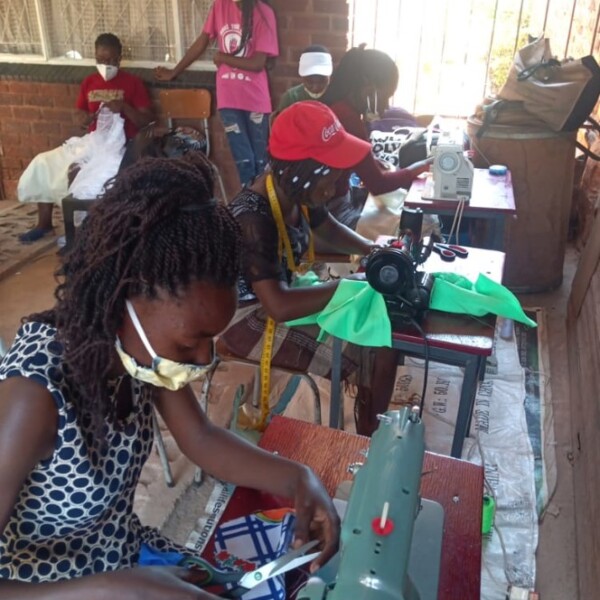
«fepa is unique to KSTC in transforming lives of underprivileged youth in personal development hence transforming the communities and the nation at large. If you serve the youth you save the nation» – KSTC
The Kuwadzana Skills Training Centre (KSTC)
The Kuwadzana Skills Training Centre (KSTC) provides vocational training to unemployed men and women in the township. 60 to 100 young people between the ages of 15 and 30 benefit from training in tailoring’ design & interior decoration, hair styling or welding, as well as preschool teachers and from the professional guidance that empowers them to become economically independent and strengthens them in their daily lives.
Currently
- Our report for the year 2022 shows: 64 young people graduated 2022 from the KSTC (only available in German).
Education in the township
This centre is a real project from the “community”: Here, structures are not created by an established, specialised NGO, but the teachers and the board create them themselves and grow with the task. This involves many learning processes and a great commitment on the part of the training centre’s supporters for the benefit of the young beneficiaries. The manual training is adapted to the local living situation. With sound pedagogical knowledge, the interests and previous knowledge of the participants are combined with the economic realities (often informal gainful employment). In addition to learning the craft, the acquisition of entrepreneurial skills is an important part of the training. With a focus on micro-enterprise management, the trainees are empowered to become economically independent. In addition, the KSTC offers various courses and workshops on the topics of life and civics, HIV/Aids and gender equality. These give the young people a basis for a self-determined and better future and are open not only to KSTC students but also to young people from outside the township.
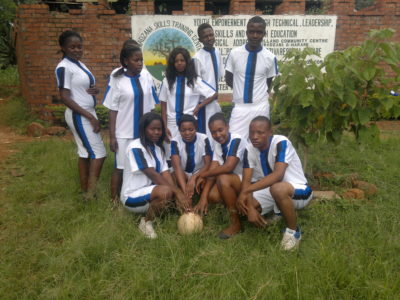
Through the workshops, up to 400 young people are reached every year. The mixture of vocational training, orientation and life skills gives the young people a valuable basis for making decisions in a difficult environment that will help them in life and enable them to actively shape society.
The training centre overcame an organisational crisis in 2011/12 and has since developed positively and repeatedly demonstrated its resilience to the difficulties of the economic crisis in Zimbabwe.
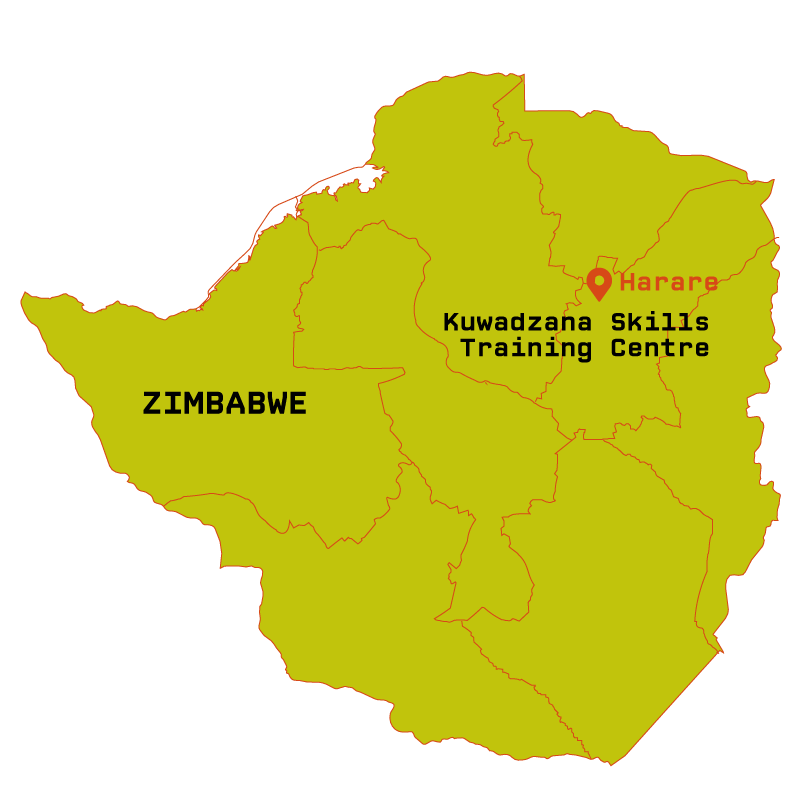
| fepa partner organisation | Kuwadzana Skills Training Centre |
| Location | Kuwadzana in Harare, Zimbabwe |
| Target group | Youths without completed school or vocational training |
| fepa contribution 2019 | CHF 20’000 |
| fepa contribution 2020 | CHF 27’000 |
| fepa contribution 2021 | CHF 28’500 |
| fepa contribution 2022 | > CHF 30’000 |
With your donation in favour of this project…
…you support young women and men who depend on scholarships to be able to afford vocational training.
Donate for apprenticeships
Further information
- Photos of the KSTC teams in their homemade clothes can be found in the Training Opportunity Gallery.
Dangwe Arts Pre-School: Right on Early Education for all
Dangwe Arts and Culture Centre
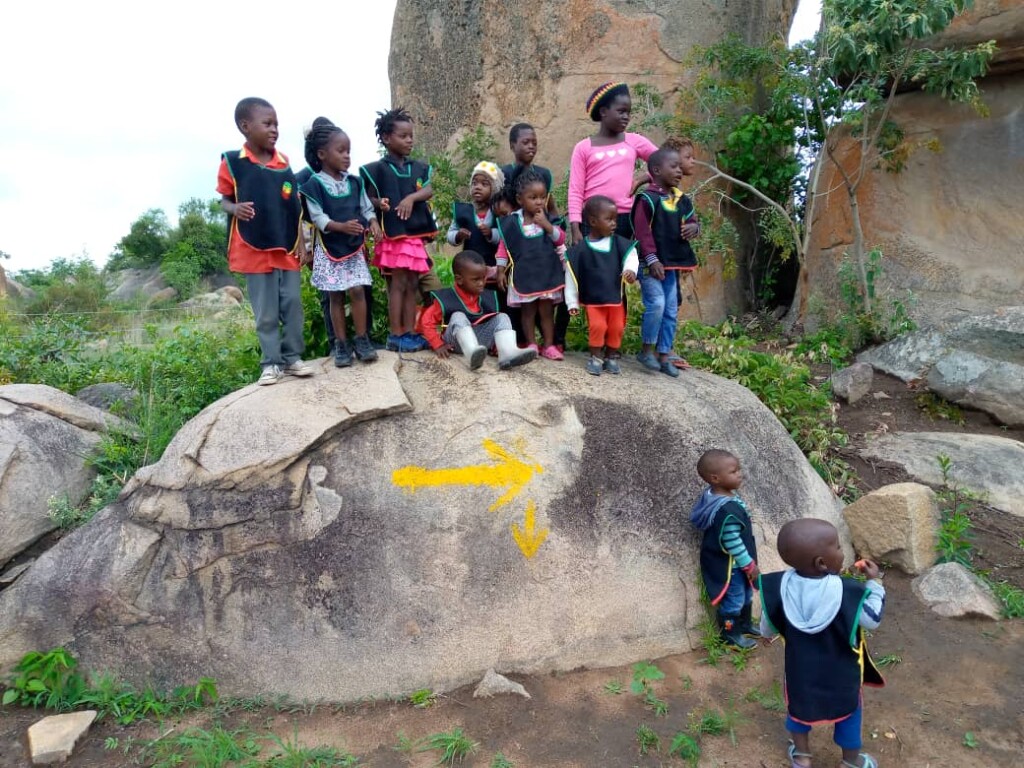
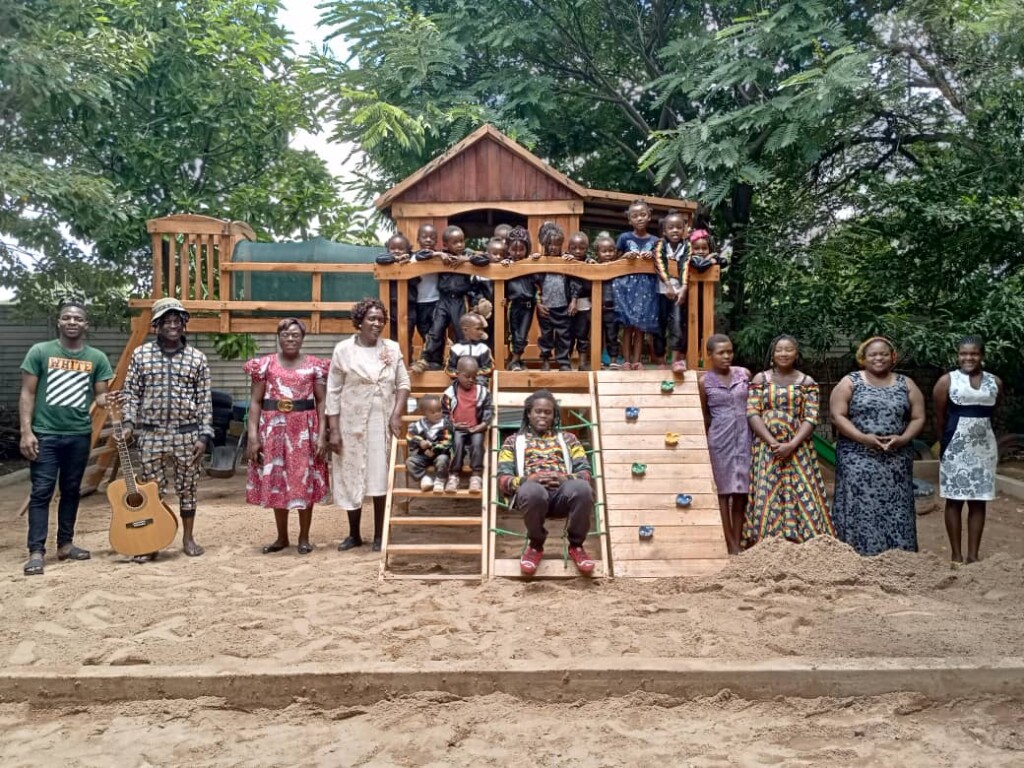
«Let the hungry be fed,
the naked be clothed,
the sick be nourished,
the aged protected,
and the infants be cared for» – Dangwe
Currently
Check out our news page for the latest on this partnership.
Dangwe Pre-School
Since 2018, the Dangwe Arts & Culture Centre has been running an inclusive preschool for 25 children between the ages of 3 and 5. The loving guidance corresponds to the applied Waldorf school pedagogy, whereby all children receive targeted support. The early stages of life form the basis for healthy and personal development for every child. With the Dangwe Preschool, children from low-income and marginalised households are given this access to early education. The members and founders of the Dangwe Art Collective, who drive the preschool, know from their own experience how important it is to grow up in a protected environment. That is why they are still committed to providing this child-friendly care.
After only four years, the preschool was expanded with its own permaculture garden. Today, the organic cultivation of vegetables and grains enables all pupils and children from the neighbourhood to enjoy a healthy meal. The attached sanitation system provides access to clean water and contributes to reliable and improved livelihoods.
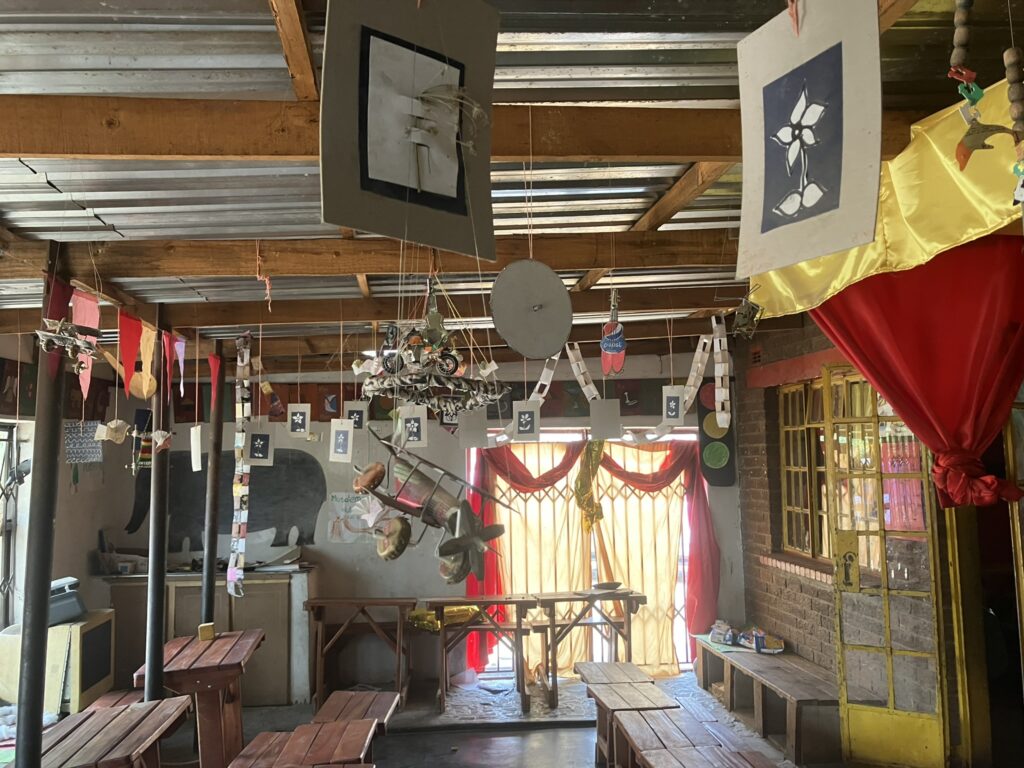
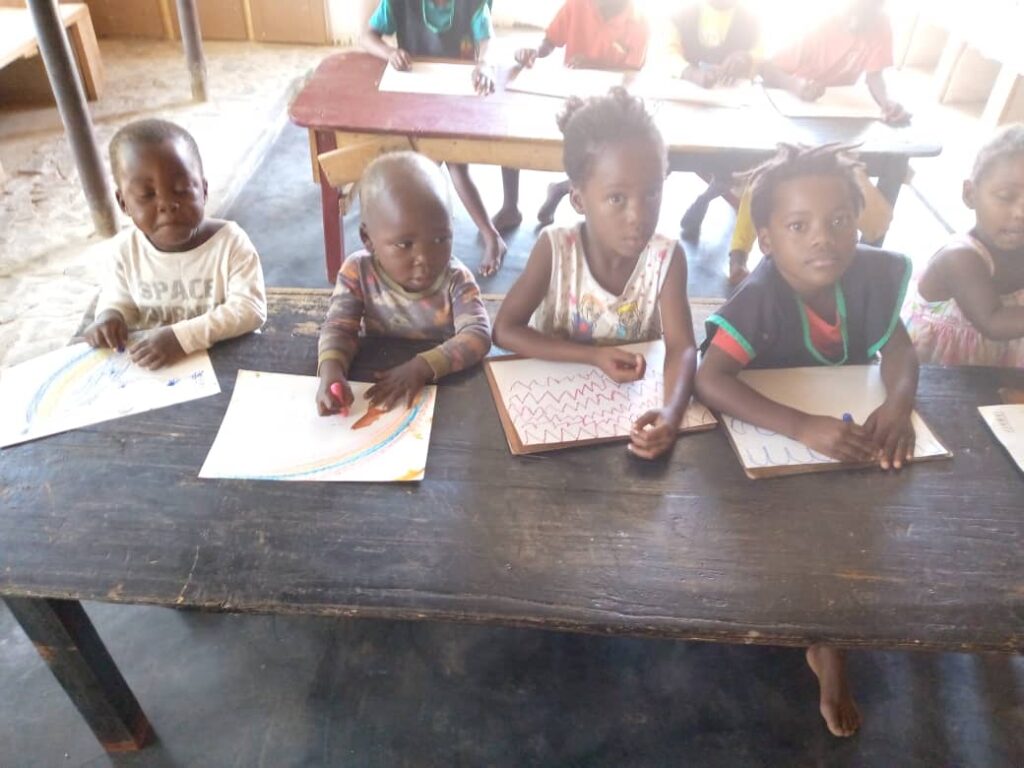
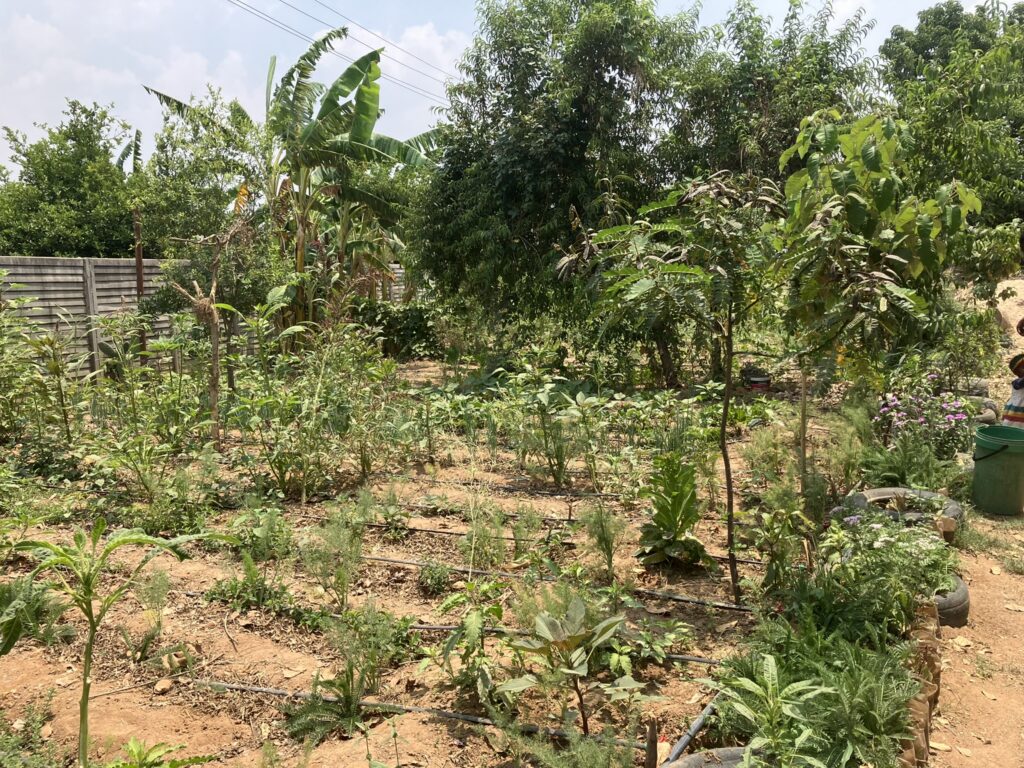
Dangwe Arts
Arts and crafts as self-help – The story of Dangwe
Dangwe means “first born” in the Shona language of Zimbabwe. In Chitungwiza, one of the largest townships outside the capital Harare, a group of children got together in 1997 to find their way off the streets. The result is today’s Dangwe Arts Collective, a community of 20 children and young adults who earn their living by selling handicrafts, among other things.
Since hardly any tourists come to Zimbabwe any more, it is becoming increasingly difficult for the young artists to find buyers for their products. The majority of the handicrafts are made from recycled materials. fepa supports the sale of Dangwe Arts products in Switzerland for the benefit of the collective.
With fepa’s support, the Dangwe Arts collective has been able to create its own home outside Chitungwiza. Today, the two buildings and the Dangwe Arts pre-school are complemented by a large permaculture garden for self-sufficiency, a chicken coop as well as a sanitary facility and a well for the supply of clean drinking water.
Brief overview on the Dangwe Arts Collective
| fepa partner organisation | Dangwe Arts Collective |
| Location | Chitungwiza, Zimbabwe |
| Target group | (former) street children, children at risk of having to live on the streets, children with disabilities |
| fepa contribution 2018 | CHF 6’500 |
| fepa contribution 2019-2021 | CHF 45’700 |
| fepa contribution 2022 | CHF 25’000 |
| fepa contribution 2023 | CHF 25’000 |
| fepa contribution 2024 | CHF 25’000 |
Your donation for the Dangwe Arts Collective
Support the Dangwe Arts Collective, which advocates for the right to education and basic services for children from disadvantaged families.
Donate towards the early education of children at Dangwe Arts Preschool.
Farm Workers in the Central Karoo: Overcoming Marginalisation through Self-Help
Farm Workers in the Central Karoo: Overcoming Marginalisation through Self-Help
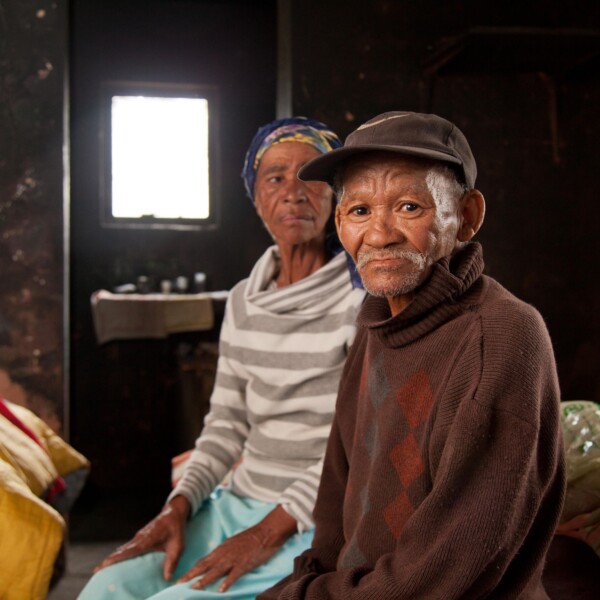
In cooperation with the Centre for Rural Legal Studies (CRLS), we encourage farm workers and their families to stand up for the improvement of their often devastating living and working conditions and to reduce their dependence on the farm owners. To this end, we support the work of the self-help organisation CKFCA.
The Covid pandemic hit the financially poor communities in South Africa hard. This was also true for the CKFCA. Committed people from the CKFCA worked hard as ‘community activists’ for the people in the communities during this time. Unfortunately, the CKFCA also lost its mentor Mzukisi Mooi in the pandemic.
Since the end of the pandemic, young people have played an increasingly important role in CKFCA activities. In 2023, a youth camp was held for the first time, giving over 70 young people a unique opportunity to experience and expand their creative power.
Currently
Check out our news page for the latest on this partnership.
Strengthening farm worker communities
“Nothing more about us, without us” is the slogan of the farm workers’ communities in the central Karoo, which has been formally registered as an organisation since 2013. With this slogan, the farm workers express what they have suffered in the past centuries. The farm workers’ lives take place on the farms and their dependence on their employer is great. Housing rights, access to water, sanitation and schooling, transport and more often depend on the goodwill of the farm owner.
20 years after the end of apartheid, the rights guaranteed in the constitution are not implemented in everyday life. Laws to protect farm workers have been enacted and yet they are not implemented and enforced. Approximately 900,000 farm workers, the majority of them women, are employed in South Africa, mostly on a seasonal basis. They live in geographical isolation and have little access to information. Due to the precarious living conditions, their main concern is to ensure the survival of their families. The project in the Central Karoo has made great progress in recent years. The farm workers are able to raise joint demands and represent them vis-à-vis the authorities and farm owners. In the project, the farm workers identify their problems and jointly defend themselves against their inequalities. In the project, they also discuss important issues such as unjustified evictions from farms, alcohol and drug abuse and keeping a household budget. They use a radio station to draw attention to themselves and inform people about events.
fepa’s partner organisation Centre for Rural Legal Studies (CRLS) in Stellenbosch supports the CKCFA organisation with representatives so that their interests can be heard by the authorities and farm owners. CRLS is also helping with preparations for a campaign for better water supply and sanitation facilities on the farms.
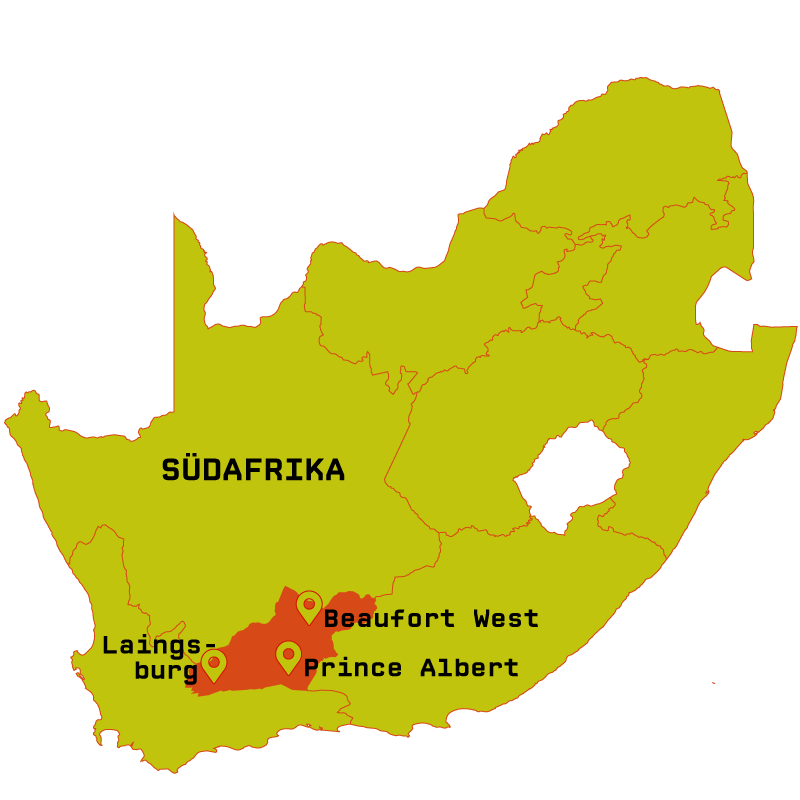
| fepa partner organisation | Centre for Rural Legal Studies, Stellenbosch and Central Karoo Farmworkers Association |
| Location | Central Karoo, South Afrika |
| Target group | farm workers and their families |
| fepa contribution 2019-21 | CHF 35’000 |
| fepa contribution 2022 | CHF 12’000 – 15’000 |
| fepa contribution 2023 | CHF 12’000 plus Youth Camps |
| fepa contribution 2024 | CHF 12’000 plus Youth Camps |
With your donation for this project…
…you support farm workers and their families that fight for a more dignified life in the Central Karoo.
Donate for living quality
Women’s rights and Gender justice: Activism at the grass roots
Women’s rights and gender justice: Community of Practice strengthens activism
Focused entirely on practice and innovation: Together with more than a dozen organisations, mostly led by young women, we strengthen activism and innovation for a strong movement for women’s rights and gender justice.
Agriculture and ecological turnaround: Future thanks to agroecology
Future through sustainable agriculture
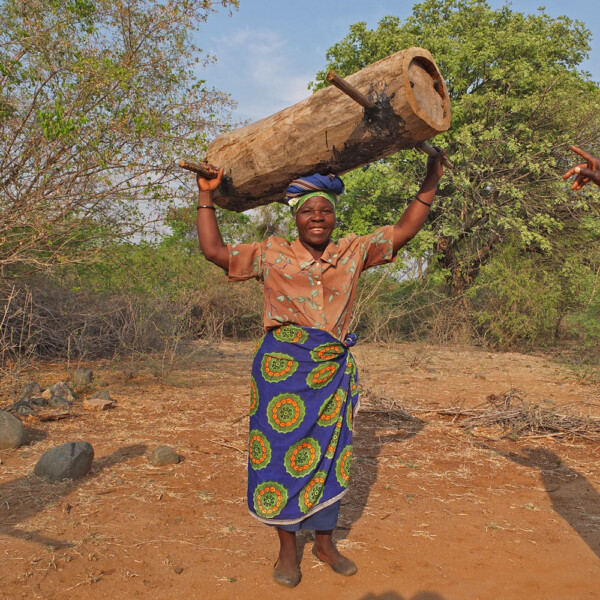
For smallholder farmers in the lowlands of south-eastern Zimbabwe, the forest garden in Chaseyama is a beacon of ecological knowledge and dignity. It points a way out of environmental degradation and food insecurity.
In recent years, a dynamic and inclusive agro-ecological movement has grown up around fepa’s partner organisation PORET. Farmers, many of them women or young people, improve their own production in exchange and support the development of the community. The results are good: food security has increased.
The agroecological awakening is complemented by an initiative for a more cooperative pastoralism that uses livestock in a holistic way to also restore natural resources (land fertility, water balance, etc). This is a particularly complex task that only a movement strongly anchored in local society can solve.
Organic farming in the lowlands of Chaseyama
Issues of food security, ecology and the strengthening of smallholder structures shape the development perspectives of rural areas – also in Zimbabwe. The persistently poor economic situation there particularly weakens farmers’ access to means of production. In recent years, Zimbabwe’s naturally disadvantaged agricultural zones in particular have suffered from massive drought. These include the arid lowlands in the southeast, where this project is located.
There, the “Forest Garden” project is creating a nucleus of learning, knowledge and technology exchange and improved sustainable farming practices in the arid areas affected by ecological degradation: Based on a “forest garden” to be redesigned according to permaculture principles, a management of natural bases for food production adapted to local ecological and cultural factors is promoted.
The project creates a new and locally anchored platform for knowledge exchange within the network and stimulates a thought process on sustainable forms of production in the arid lowlands. Careful management of natural resources is taken into account, as is the preservation of local knowledge about adapted seeds and crops. Community care is an integral part of this approach.
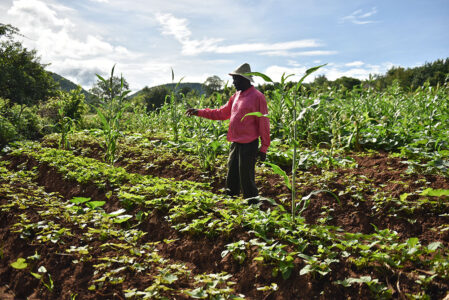
The success of the project is measured not least by its impact: many farmers participate, implement ideas on organic farming and thus actively improve their food situation. The project participants in Zimbabwe have already proven that this works. In the south-east of Zimbabwe, one of the most successful permaculture projects in the world has been developed over the last 20 years.
With its concrete activities, the project is laying a foundation for PORET’s long-term contribution to the creation of sustainable development in an ecologically fragile region riddled with social conflict. Within the framework of the project, a kind of ecological model farm is being established in self-help and the necessary infrastructure measures are being implemented. Based on this, a program of workshops with training character and mobile consultations will be carried out. The yields from the forest garden are also used to provide healthy meals for about 30 children in the affiliated kindergarten.
PORET is already well connected and affiliated to various national and regional umbrella organisations and networks.
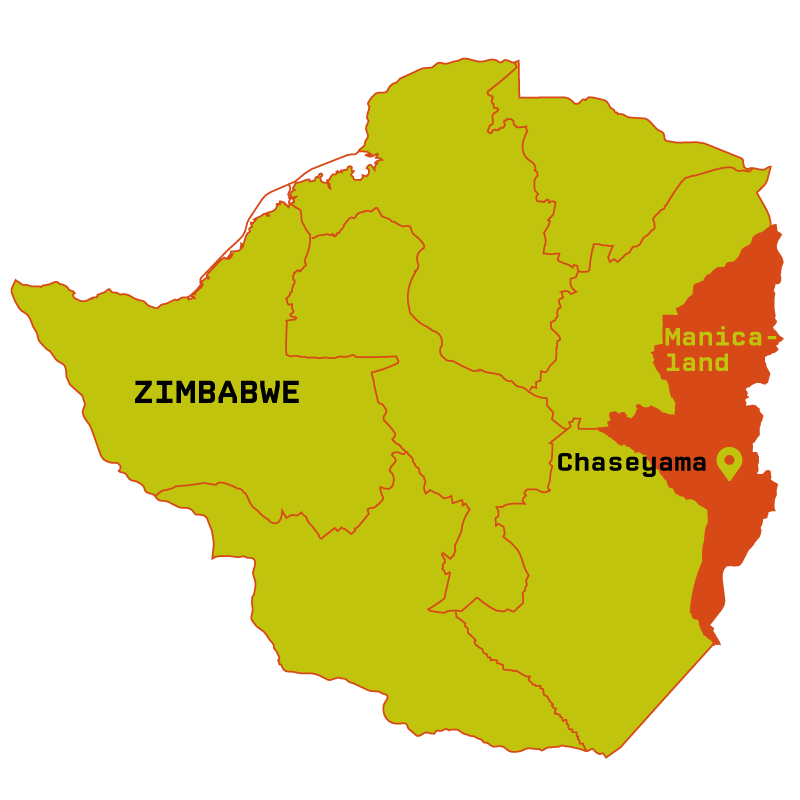
| fepa partner organisation | PORET |
| Location | Chaseyama, Zimbabwe |
| Target group | Small-scale farmers in the arid lowlands of Chaseyama |
| fepa contribution 2016-2023 | CHF 340’000 |
| fepa contribution 2022-2024 | CHF 480’000 |
With your donation in favour of this project…
…you support small farmers to initiate an ecological turnaround so that they can continue to live from the yield of their agriculture for a long time to come.
Further information – English only
- Further information is available in German.
- Find PORET here online: Website, Facebook and Instagram.
- 2022 Annual Report from PORET.
- Achievements 2021.
- The Permaculture Documentation Handbook (Nov. 2020) by Shadreck Masawi (Author) was produced in collaboration with PORET.
- PORET publishes an article on “Water Harvesting” in ZiMunda Farming Magazine.
- PORET publishes an article on “livelihood” in ZiMunda Farming Magazine.
- In our Journal from October 2017, we portrayed two small-scale farmers. Find here the extensive versions.
